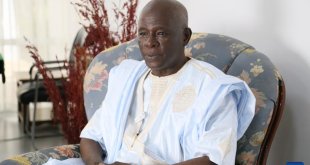Published: 23 July 2025
By Gerald Mbanda

Chinese and US scientists have been collaborating well in the past which creates confidence between the two countries. The expulsion is a clear indication of politicizing scientific research cooperation under the usual excuse of “national security” which to undermines exchanges and cooperation between the two countries
The US policy toward Chinese scientists has transitioned sharply from engagement to suspicion, exclusion, and containment. Since the launch of the so‑called “China Initiative” in 2018, hundreds of researchers—most of Chinese ancestry—have faced investigations, prosecutions, and academic dismissals, even when no actual espionage was involved. A 2021 MIT study found that only one-third of the China Initiative cases resulted in convictions, many of them for minor paperwork issues, not national‑security threats. Approximately 88 percent of those targeted were of Chinese descent, fueling allegations of racial profiling. Eventually, the Biden administration formally ended the initiative in February 2022, acknowledging the damage to fairness and trust.
This discriminatory approach has had a chilling effect. A survey of over 1,300 scientists of Chinese origin—conducted by MIT, Princeton and Harvard—revealed 35 percent felt unwelcome, 72 percent did not feel safe conducting research, and 65 percent were uneasy collaborating with colleagues in China. Nearly two‑thirds had considered leaving the U.S. altogether, while many declined to apply for federal grants out of concern. Data from Stanford’s Center on China’s Economy further showed that departures of Chinese‑origin scientists increased by 75 percent since the China Initiative’s launch, with two‑thirds relocating back to China by 2021.
Visa restrictions have compounded the problem. From 2020 onward, Chinese students in sensitive technical fields faced heightened scrutiny, and visa denials rose sharply, triggering a 25 percent decline in Chinese student enrollment by 2023. Many international students and researchers now opt for destinations such as Europe or even China itself.
Despite these pressures, U.S.–China scientific collaboration has proven more impactful than isolation. A large-scale analysis of over 350,000 AI researchers and 5 million academic papers shows that collaborative research between the U.S. and China produces more novel and influential results than work conducted independently by either country. Scientific American reports a decline in co‑authored papers for the first time in a decade, particularly between U.S. and Chinese researchers, further warning of lost innovation potential and global coordination in areas like pandemic response, climate science, and food.
The U.S. has already forfeited significant talent. A report from Time Magazine detailed that nearly 20,000 Chinese scientists left the U.S. between 2010 and 2021, with the trend accelerating after political actions under Trump and visa restrictions under both Trump and Biden administrations.
Restoring openness would help retain global talent, reverse the brain drain, and reaffirm America’s commitment to meritocracy, not suspicion by ancestry, experts warn. As bipartisan concern grows over the cost of diminished innovation, academic leaders and major research institutions have called out government actions that isolate Chinese-origin scientists, warning that intimidation and exclusion damage U.S. leadership in critical fields like biomedical.
Rather than attacking, smearing, or containing China across all scientific domains, the U.S. should reject racial profiling, rebuild trust in science diplomacy, and invest in domestic R&D competency instead of isolationism. Target misconduct case-by-case, not scientists by ethnicity. Reaffirm the principle that collaboration is a strategic asset, not vulnerability.
In today’s converging world, global challenges—from pandemics and climate crises to AI governance—demand cooperation, not competition. As the world’s two largest economies and scientific producers, the U.S. and China have a shared responsibility to engage, regulate, and innovate together. Renewed collaboration, anchored in transparency and equity, will yield far more benefits than unilateral suspicion ever could.
Gerald Mbanda is a Researcher and publisher on China and Africa.
 Africa -China Review Africa -China Cooperation and Transformation
Africa -China Review Africa -China Cooperation and Transformation
